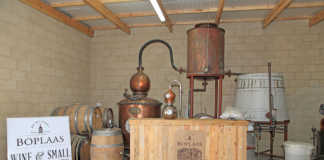
At any game of rugby, the faithful gather round and reel off facts such as the number of matches the teams have played against key rivals, the points for and against, and the results achieved under each coach.
If the discussion turns to feats of individual players, fans will have detailed recollections of each player’s contribution, the number of tries scored, the tackles made, the metres gained, and all the rest.
If the topic is cricket, even more statistics are bandied about, and a rich repository of facts are gleefully quoted and debated.
And if you’re not 100% sure of something, charts, graphs and records are all available on the Internet. In fact, name any sport, and the chances are that someone somewhere has compiled extensive statistics for all participating countries.
The days when a coach made a final choice on a team by simply observing the players on the field are over. Obviously, this is the first step, but then it’s down to the records and the detailed analysis of performance metrics. Where has there been improvement? Where has there been slippage?
Sporting facts vs farming finances
Now let’s have a look at how many farmers can recall the metrics of their businesses.
Production records are normally at their fingertips.
The number of hectares or stock numbers are instantly quoted, as are this season’s yields, although invariably the highest yield obtained is mentioned rather than the seasonal average!
Yield trends over the past few years are usually harder to come by without getting back to the office.
Product quality metrics are quickly cited, but here too, trends are not readily recalled. The highest standards achieved are usually mentioned, not the seasonal average.
Prices, especially for the present season, are quoted instantly, although, once again, averages are seldom mentioned. And good prices will be recalled more readily than low ones.
In my experience, it’s when I start delving into the financial side of the business that answers become hazy. There is usually little hesitation concerning the present overdraft/cash position, but the forecast cash position at year-end will often be unobtainable.
Either it has not been projected, or, if it has, farmers will generally be unable to recall it if they have managed to pay the present bills.
Budgets and profit
If I follow up with questions about how the business is performing compared with the budget, I often find that no budget has been prepared.
If I ask questions about past profit figures, or whether any return-on-investment analyses have been done, I’ll probably be told, “Oh, you’ll need to speak to our bookkeeper about that.”
As long as farmers have cash available to pay the bills, most will leave the financial side of the business to their accountants. Yet, as they will all agree, the primary object of the business is to make a profit and provide a fair return on investment.
When will farm managers take the same level of interest in the metrics of their businesses as so many of them do when they follow sport? It’s a crucial interest and skills gap that needs to be filled.
Balanced business skills for a complete understanding
As I’ve written before, great managers need a balanced set of business skills, and many of our farmers are skilled in production knowledge, weaker on marketing and HR, and hopeless on finance.
I’m not saying that all farm managers should be accounting boffins, but they at least need to understand the basics, and be able to satisfy themselves that their accountant is doing a thorough job for them.











